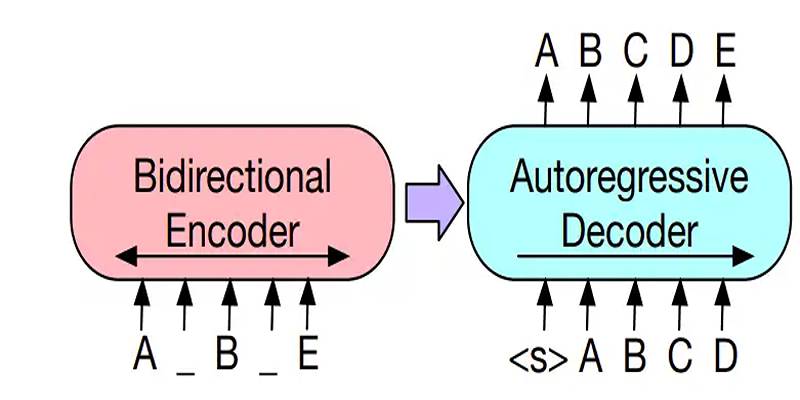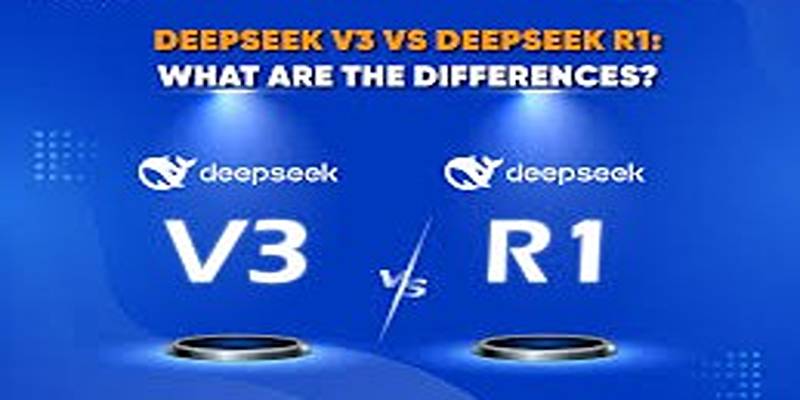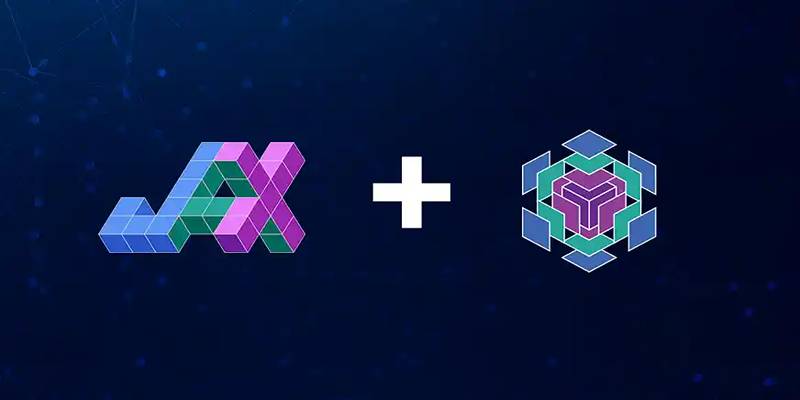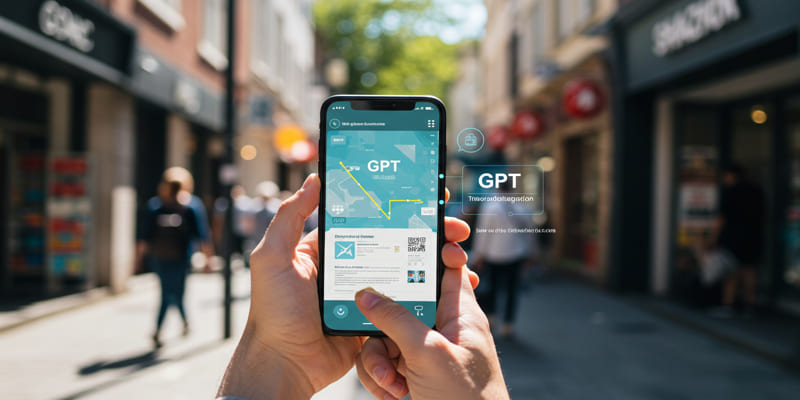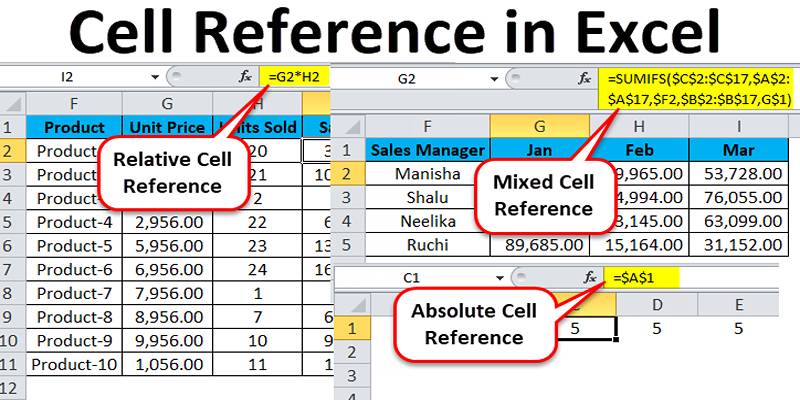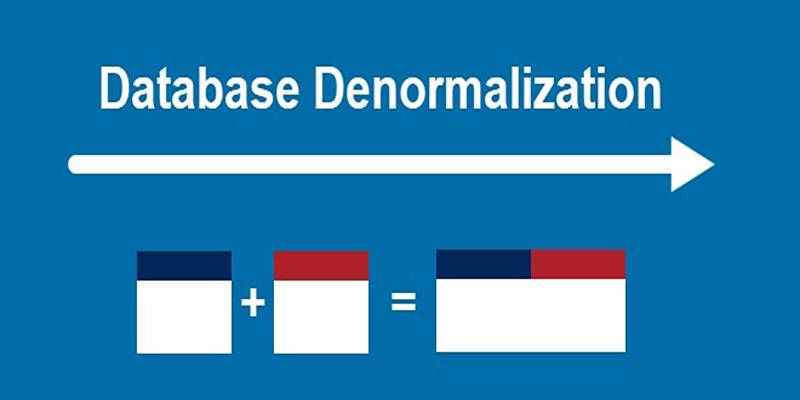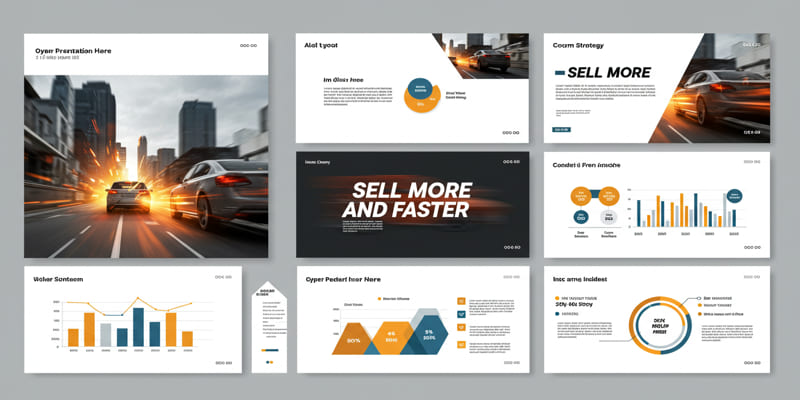Back in the 90s, sales used to mean cold calls, endless email chains, and tracking deals on a whiteboard. But those days are long gone. AI and automation have swooped in like crazy fast in recent years, taking over the tedious, time-consuming tasks so sales teams can focus on actually selling.
So, if you’re still manually copying and pasting emails or losing leads because your follow-up game is weak, buckle up. Here are 12 ways AI and automation can streamline your sales process and maybe even make you look like a genius in the process.
1. Automate Lead Qualification
Sales reps spend too much time chasing leads that go nowhere. Enter AI-powered lead scoring. These tools analyze customer data—browsing behavior, engagement levels, past interactions—and tell you which leads are worth your time.
Imagine having a robot that just tells you, "Hey, focus on this lead; they’re actually interested!" That’s basically what AI does. Tools like HubSpot, Salesforce Einstein, and LeadSquared prioritize only those leads which are more likely to convert.
This means less time wasted on dead-end leads and more time closing deals. And let's be honest—no one enjoys sending follow-up emails to someone who just downloaded a freebie and ghosted.
2. Personalize Cold Outreach
Cold emails don’t have to feel… well, cold. AI can make your outreach feel personal, relevant, and even borderline charming.
AI-powered tools like CrystalKnows and Drift analyze data from LinkedIn profiles, past email interactions, and social media to tailor your messages. Instead of “Hey [First Name], I have a great offer for you,” it becomes:
“Hey Sarah, saw you’ve been scaling your marketing team. Thought you might be interested in a tool that automates your lead nurturing. Here’s how it helped [similar company] grow 40%.”
Feels less like a desperate sales pitch, right? Personalization boosts email open rates, engagement, and response rates, making your outreach 10x more effective.
3. AI-Powered Chatbots for Instant Engagement
Let’s face it—no one likes waiting for a reply, especially when they’re ready to buy. AI chatbots can instantly engage website visitors, answer FAQs, qualify leads, and even book meetings for your sales team.
Think of it as a 24/7 sales assistant who never sleeps, gets sick, or takes lunch breaks. Tools like Drift, Intercom, and ChatGPT-based bots can handle initial conversations, ensuring your leads don’t bounce before a human can jump in.
Plus, they can personalize conversations based on browsing history. If someone’s looking at your pricing page, the bot can nudge them with: “Need help choosing the right plan?” instead of a generic “How can I assist you today?” Less friction = more conversions.
4. Automate Follow-Ups
Sales 101: The money is in the follow-up. But manually following up with every lead? Absolute pain.
AI automation tools like Outreach, Salesloft, and HubSpot can schedule and personalize follow-ups based on lead behavior. If a prospect opened your email but didn’t reply, AI can send a friendly nudge: “Hey, just checking if you had any questions.” If they clicked a pricing link, it can suggest hopping on a quick call.
This keeps leads warm without annoying them and saves you from the classic “Oh no, I forgot to follow up” moment.
5. Predictive Analytics for Smarter Sales Decisions

Wouldn’t it be nice if you could predict which leads will buy, when they’ll buy, and how much they’ll spend? AI-powered predictive analytics does just that.
AI tools like Gong, People.ai, and Clari can forecast revenue, identify deal risks, and optimize sales strategies by analyzing historical data, market trends, and customer behavior.
Instead of relying on gut feelings, you get data-backed insights that tell you where to focus your efforts. No more wasting time on leads who are just "browsing." Now, you know who’s ready to buy and when to strike.
6. Automate CRM Updates
Updating your CRM manually is like doing taxes—tedious, boring, and necessary. But guess what? AI can handle it for you.
Tools like Salesforce Einstein and Zoho CRM use AI to log calls, emails, and notes automatically, saving you hours of admin work.
The best part? No more human error. Your CRM stays up-to-date without you having to remember to input every single detail.
7. AI-Powered Pricing Optimization

Pricing isn’t just about guessing what feels right. AI tools like PROS and Pricefx analyze market demand, competitor pricing, and customer behavior to suggest optimal pricing strategies.
We’re only humans. So of course, we’ll miss the “perfect” pricing if we don’t analyze the data. Maybe you could charge 30% more, and your clients/customers would be fine with it. But you’ll never know if you don’t analyze pricing data using AI.
Having AI-powered pricing optimization is like having a personal finance guru saying, “Hey, you could actually charge 13% more and still close the deal.”
8. Automate Social Selling
Social selling isn’t just posting LinkedIn updates and hoping for the best. AI tools like LinkedIn Sales Navigator and Sprout Social can track engagement, recommend connections, and suggest personalized outreach messages.
These tools will make your “warm leads” selling process easier. They’ll help you nurture the right connections that can lead to a close. More targeted interactions = more sales.
9. AI-Powered Proposal Generation
You don’t need to spend hours crafting sales proposals. We’re not in the 2000s anymore, seriously. It’s 2025. You don’t have to sit there and think “how to pitch your clients.”
AI tools like PandaDoc and Proposify can generate, customize, and optimize proposals based on past successful deals.
These tools can help you allocate more time for selling instead of manually working on sales proposals.
10. AI-Powered Call Analysis
Ever wish you had a personal coach listening to your sales calls? You see those short videos where the gurus are training young salesmen to sell better, faster, and more efficiently. Well, guess what? There is one guru who has more data in his head than all the “wanna-be sales gurus” combined—AI.
AI tools like Gong and Chorus analyze conversations to identify winning sales tactics, common objections, and areas for improvement. Basically, AI helps you sell smarter.
11. AI-Powered Content Creation
Sales ain’t just about selling anymore. It’s also about what comes before it, and content is one big part of it. And we all struggle with content—coming up with new ideas, personalization tactics, and all of that can get quite tiring if you’re constantly trying to find new angles and approaches.
But we live in the time of AI tools—Jasper and Copy.ai generate email sequences, blog posts, and ad copy that actually convert. Sales + AI copywriting = a match that can’t be separated in 2025
12. Automate Contract Management
Another major part of the sales process is the contract. Now, this is not really that time-consuming, but it can still feel like doing one thing over and over again—pretty tiring and boring, to say the least. AI-powered contract management tools like DocuSign and Ironclad automate contract creation, approvals, and tracking. Faster deals = happier customers.
Wrapping It Up
AI and automation aren’t here to steal your job—they’re here to make your life easier. From lead qualification to follow-ups, proposal generation, and social selling, AI tools can streamline your sales process so you can focus on what really matters: closing deals. The future of sales is here, and it’s looking pretty effortless.
